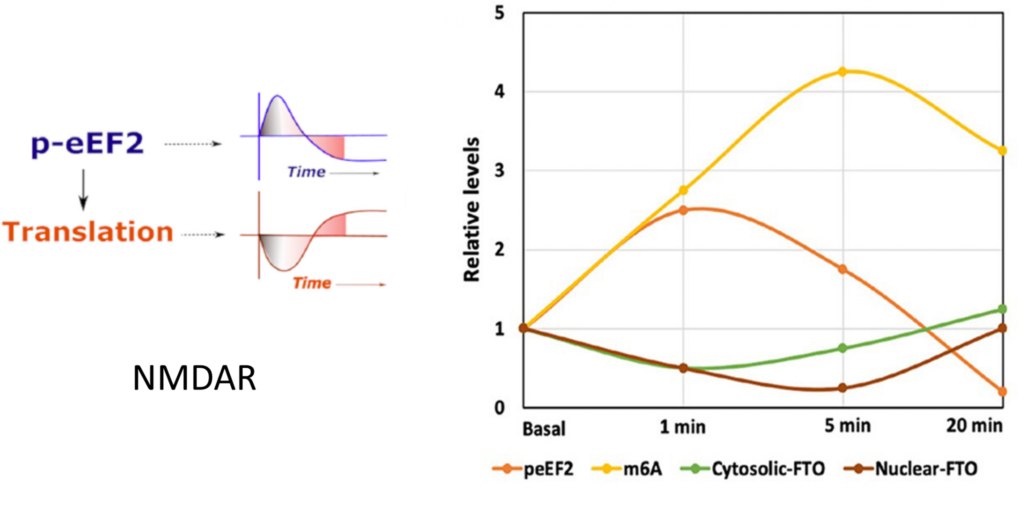
Making new proteins ‘as and when required’ is an important component of memory formation and storage. Understanding the actual mechanism of this process will go a long way in elucidating the factors that contribute to the loss of memory and cognition in dementia. Our recent work highlights the role of a major RNA modification (m6A) in regulating protein synthesis in response to a neuronal activity (NMDAR stimulation) that is critical for memory formation. Our work shows that the m6A modification alters dynamically to facilitate specific protein synthesis in response to NMDAR stimulation which is aided by the altered activity of the enzyme (FTO) which regulates this modification. We demonstrate the concerted action of multiple factors such as eEF2 phosphorylation, FTO activity, and level of m6A to bring about the biphasic protein synthesis response (initial inhibition followed by late activation) to NMDAR stimulation. This is likely to play an important role in memory formation.
References :
NMDAR-mediated dynamic changes in m6A inversely correlates with neuronal translation. Naveen Kumar Gowda, Bharti Nawalpuri, Sarayu Ramakrishna, Vishwaja Jhaveri, Ravi Muddashetty. Scientific Reports (2022) doi.org/10.1038/s41598-022-14798-3
NMDAR-mediated dynamic changes in m6A inversely correlates with neuronal translation. Naveen Kumar Gowda, Bharti Nawalpuri, Sarayu Ramakrishna, Vishwaja Jhaveri, Ravi Muddashetty. Scientific Reports (2022) doi.org/10.1038/s41598-022-14798-3
Last Updated on September 17, 2022
![]()
